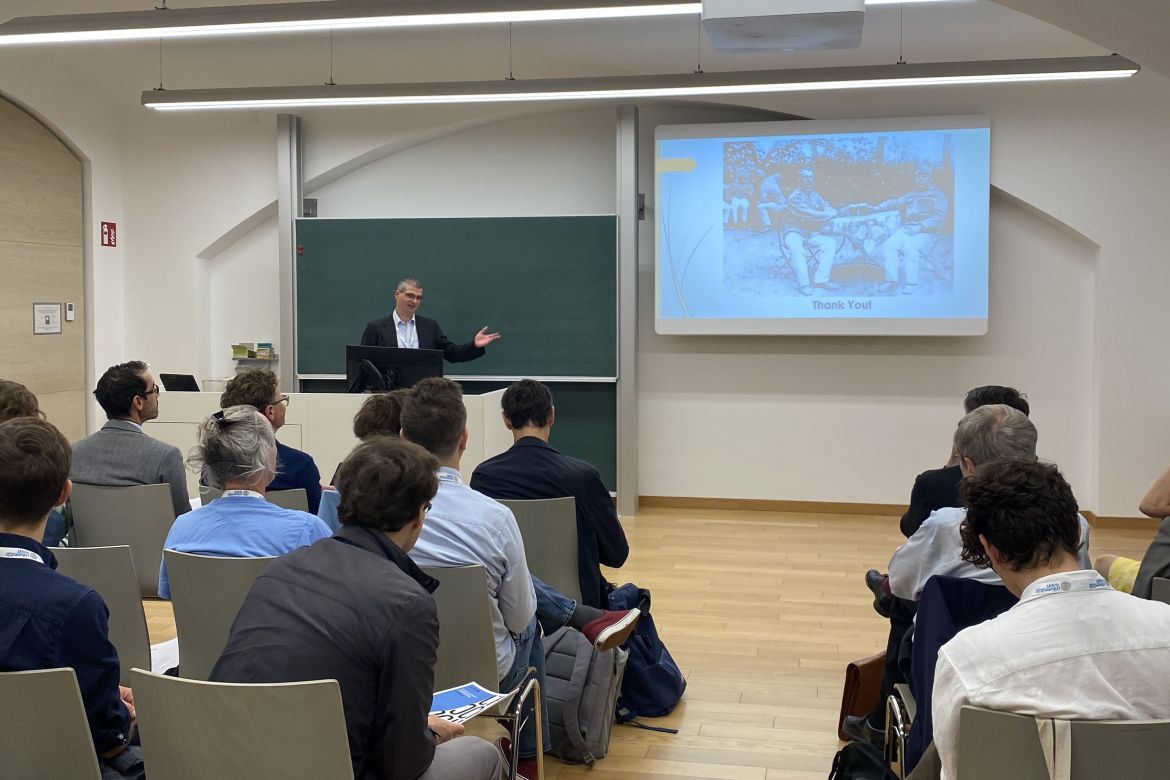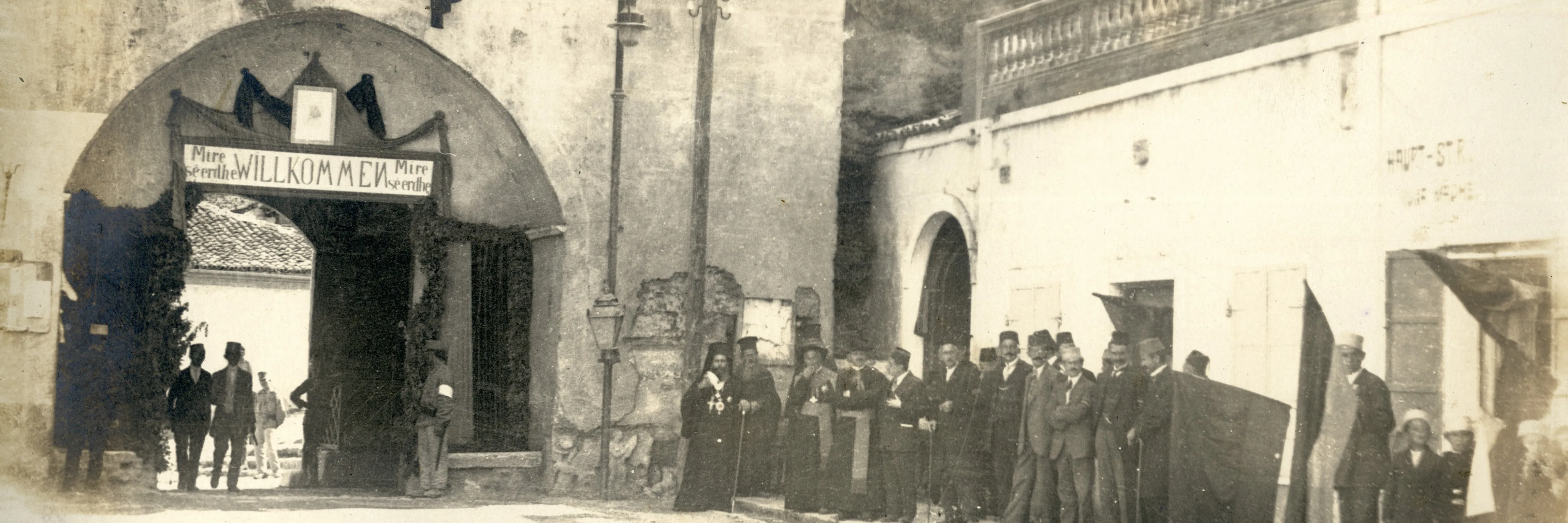The first Central European History Convention (CEH-C) meeting was held between July 17 and 19, 2025, hosted by the University of Vienna. The aim of the three-day international conference, offering a rich program, was to provide a forum for researchers worldwide who study the history of the Habsburg Monarchy, Austria–Hungary, and its successor and neighboring states. Based on their research, participants discussed the possible interpretations of the region’s past from the Middle Ages to World War II in an interdisciplinary dialogue.
 Lecture by Krisztián Csaplár-Degovics in Vienna, July 18, 2025
Lecture by Krisztián Csaplár-Degovics in Vienna, July 18, 2025
At the conference, Krisztián Csaplár-Degovics delivered his lecture on Hungarian political ideas during the dualist era concerning the ‘bad’ and ‘good’ empires (‘Bad Empire’ vs. ‘Good Empire’ – Concepts of Empire in the Debates of the Hungarian House of Representatives at the Turn of the Century).
At the turn of the century, the Hungarian House of Representatives was the scene of a significant political debate lasting several years, which focused on the policy of Benjámin Kállay (1900–1902), joint Minister of Finance, towards Bosnia and Herzegovina. It seemed that this debate criticized Kállay’s personality and governance practices, but in fact, the representatives discussed the relationship between the Kingdom of Hungary and Hungarian nation building in the context of empire, imperialism, and colonialism. The series of political attacks in question bore strong parallels to the impeachment proceedings against Warren Hastings in the British Parliament between 1788 and 1794.
The lecture scrutinized how the concepts of ‘bad empire’ and ‘good empire’ appeared in the debate between representatives of the Hungarian government and the opposition. While the term ‘bad empire’ was used to refer to the Habsburg Empire prior to 1867, and within that, to Austria, after the Great Compromise, the term ‘good empire’ became synonymous with constitutional Austria and constitutional Hungary. The lecture also presented the press and academic response to the debate in the Hungarian House of Representatives and explored its European context. One unexpected consequence of these parliamentary clashes was that after 1908, the Hungarian economic and political elite began to build an informal Hungarian empire in the Balkans, in which Albania, which became independent in 1912–1913, was to play a key role.




